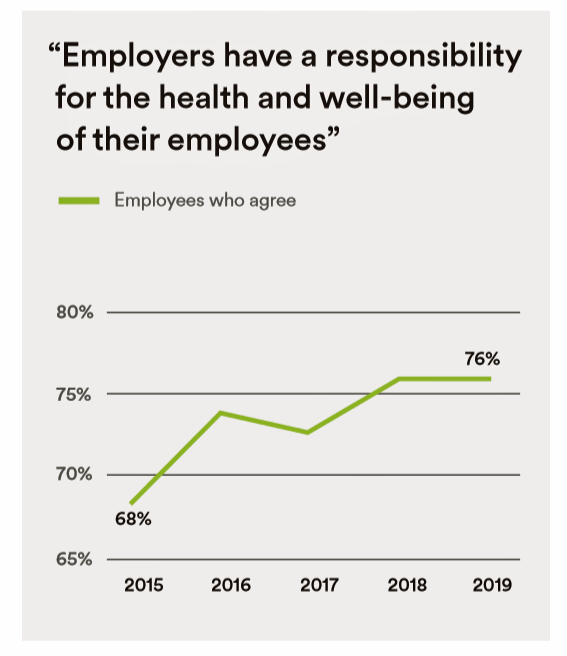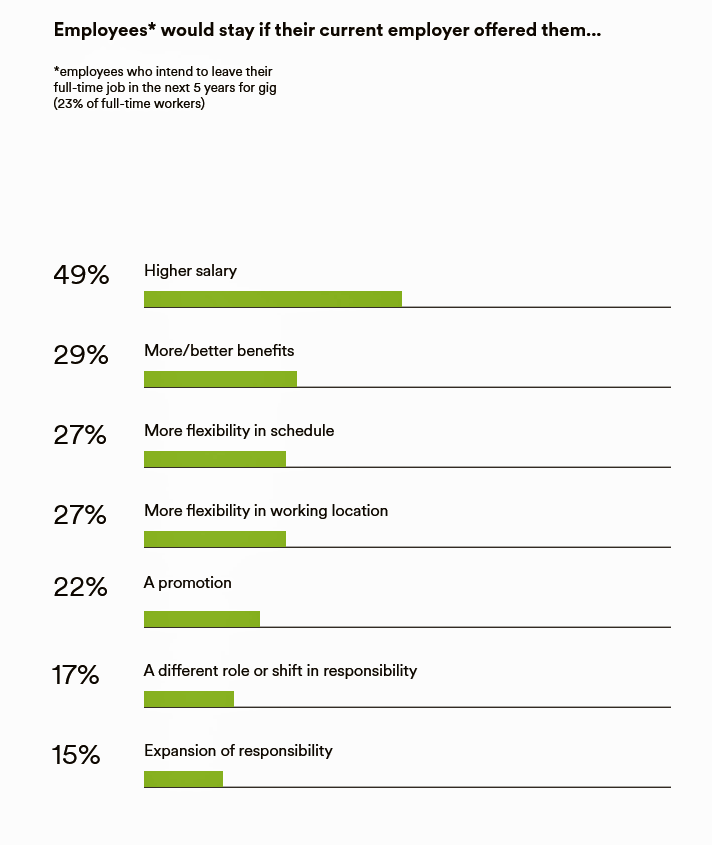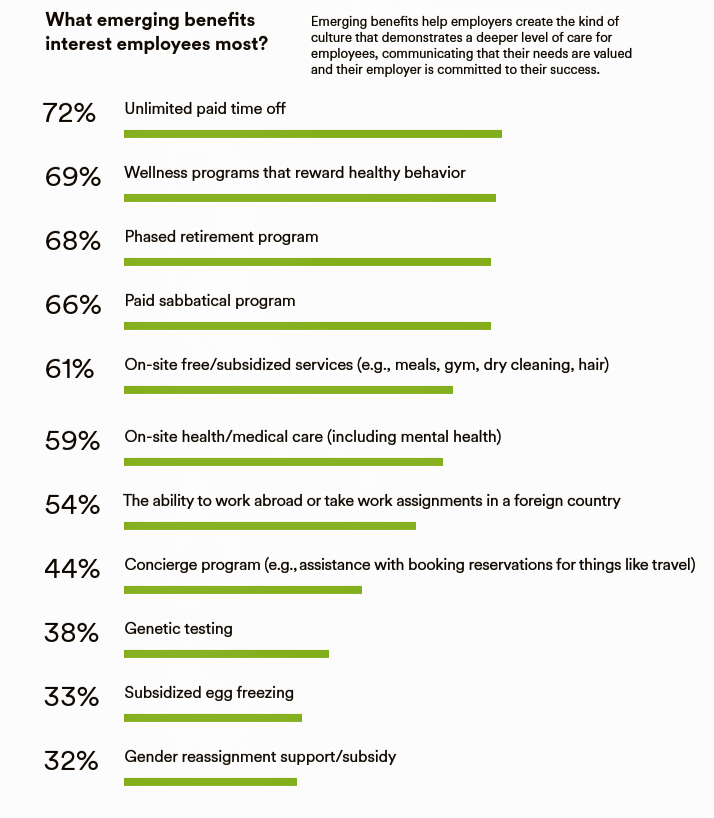
Today, April 2nd, is National Employee Benefits Day. Who knew?
To mark the occasion, I’m mining an important new report from MetLife, Thriving in the New Work-Life World, the company’s 17th annual U.S. employee benefit trends study with new data for 2019.
For the research, MetLife interviewed 2,500 benefits decision makers and influencers of companies with at least two employees. 20% of the firms employed over 10,000 workers; 20%, 50 and fewer staff. Companies polled represented a broad range of industries: 11% in health care and social assistance, 10% in education, 9% manufacturing, 8% each retail and information technology, 7% finance, among the largest respondent groups.
The top-line finding of this report is shown in the first line chart: that 3 in 4 workers believe employers are responsible for the health and well-being of their employees.
Underneath this vision are workers’ stresses about finances, such as being able to afford the cost of health care (a concern among 72% of employees), outliving retirement savings (for 68% of workers), having money to pay bills when losing a job (for 67%), having money to cover out-of-pocket medical costs (for 67%), and ability to rely on Social Security and/or Medicare during retirement (among 66%). To this last point, One-half of workers say they expect to postpone retirement due to their financial situation, MetLife found.
The financial stressors are clear, and beyond these are other stressors workers face: the stress of their jobs (which is the second-named stressor after money), tending to personal and family health (stress #3), and managing personal commitments (#4 on the stress-list).

No surprise, then, that a higher salary would motivate a worker to stay in their current company, followed by better or more benefits, and more flexibility (which speaks to the family and personal obligation stressor.
People also identify newer creative benefits they would appreciate beyond those typically offered which are health insurance, prescription drug coverage, dental, defined contribution retirement plan [401(K)], vision care, life insurance, auto insurance, and home insurance among other perks.

The third area of benefit beyond the “must-haves” (like more money, health insurance and retirement savings plans) is purpose.
“Purpose” is multifaceted, MetLife learned, embodying satisfaction with my job, engagement, productivity, impact, and a feeling of personal success. When a worker feels a sense of purpose, she is less likely to feel stressed at work, as well as less likely to feel tired, the survey observed.
There were generational differences regarding just what aspects of purpose people valued: for Boomers, purpose had to do with regularly accomplishing daily work tasks versus doing work that had relevance to the greater community. That community engagement was more valued for purpose among GenZ and Millennial workers. Feeling passionate about one’s job and doing work that contributes meaning to one’s life were also more valued among younger workers 36 and under.
Health Populi’s Hot Points: Time off for personal-individual and/or family leave is emerging as a much-demanded workplace benefit, MetLife learned. Research published in Health Affairs last week discussed the positive benefits of this benefit.
The U.S. is the only one of thirty-five OECD countries that does not offer a paid family leave policy to new mothers, and one of eight that doesn’t offer paid family leave to new fathers. Paid leave is a matter left to the U.S. States and employers.
Family leave impacts population health: the authors call out research on shorter-term (six months to up to one year) positive impacts of paid family leave for early childhood health, ability to afford nutritious food, lower maternal stress which can impact the fetus, and time for sick-care for self or baby.
More research needs to be done on paid family leave, but it’s clear workers, and particularly caregivers (both for children and aging parents across the age-caregiving continuum), have pent-up demand for this benefit.
Another lens on leave speaks to purpose: giving people time off, even unpaid which some workers would value, to pursue a purpose-driven project or experience. This third leg of the benefits stool which MetLife uncovered this year has begun to emerge in some workplaces. Think: sabbaticals go mainstream to benefit peoples’ mental health, productivity, and engagement with both work and daily living.




 Thank you FeedSpot for
Thank you FeedSpot for